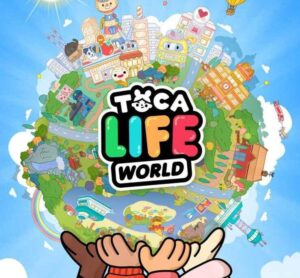Weekly Gaming Round-Up: The Rise of ‘Macrotransactions,’ PS5’s New Matte Finish, and the End of an Era for Rock Band
Popular Now
 Call of Duty
Call of Duty
 Among Us
Among Us
 Roblox
Roblox
 Candy Crush Saga
Candy Crush Saga
 NBA 2K24
NBA 2K24
 Schedule I
Schedule I
 Gacha Club
Gacha Club
 Stumble Guys
Stumble Guys
 Rust
Rust
 PUBG Mobile
PUBG Mobile
 The past week in the gaming world has been dominated by major shifts in hardware design, a concerning evolution in game monetization, and a heartfelt farewell to a rhythm game legend. From the industrial design changes at Sony to the financial strategies employed by Electronic Arts, and the inevitable sunsetting of a beloved franchise, here is a detailed breakdown of the biggest news stories you need to know. This news impacts gamers, investors, and the future landscape of the industry, particularly in the highly competitive console and live-service market where high-value in-game purchases and hardware revisions are key business drivers.
The past week in the gaming world has been dominated by major shifts in hardware design, a concerning evolution in game monetization, and a heartfelt farewell to a rhythm game legend. From the industrial design changes at Sony to the financial strategies employed by Electronic Arts, and the inevitable sunsetting of a beloved franchise, here is a detailed breakdown of the biggest news stories you need to know. This news impacts gamers, investors, and the future landscape of the industry, particularly in the highly competitive console and live-service market where high-value in-game purchases and hardware revisions are key business drivers.
SEO Keywords: Gaming News, PS5 Matte Finish, EA Macrotransaction, Rock Band Delisting, Video Game Monetization, Console Hardware Revision, Music Licensing, High CPC Keywords: In-Game Purchase, PS5 Pro, Sony PlayStation, Electronic Arts, Harmonix, Fortnite Festival.
EA’s Shifting Monetization: Microtransactions Morph into ‘Macrotransactions’
The term “macrotransaction” has begun circulating in the gaming community, reflecting a growing frustration with the increasingly steep pricing of in-game purchases in major live-service titles. While not an official term coined by Electronic Arts, the phrase is a critical commentary on the direction of their and other publishers’ monetization strategies, suggesting that “micro” is no longer an accurate descriptor for the cost of digital items.
This trend is characterized by two key factors:
- Escalating Prices: The cost of cosmetic bundles, currency packs, and high-value seasonal items now frequently ventures into the $30, $40, or even $50 range, nearing the price of a full-fledged budget game or a season pass from years past. This price creep is seen by many players as an alarming development, transforming small, optional add-ons into significant financial outlays.
- The Illusion of Value: Consumers are reporting bundles and premium items that require purchasing the highest tiers of in-game currency to afford them, leading to leftover, unusable currency balances that incentivize further spending—a classic monetization loop. Critics argue this practice is designed to obfuscate the real-world cost, making the purchases feel less “micro.”
The debate surrounding Electronic Arts’ pricing structure has intensified, with some players linking the price hikes to global economic factors, a justification sometimes offered by companies, while others see it purely as a move to maximize profit from dedicated player bases. As publishers continue to seek stable, recurring revenue streams, the line between an acceptable microtransaction and a controversial macrotransaction continues to blur, placing significant pressure on consumer spending and perception of fair gaming value.
 PlayStation 5 Receives a Sleek, All-Matte Finish in Revised Model
PlayStation 5 Receives a Sleek, All-Matte Finish in Revised Model
Sony is subtly updating the look of its PlayStation 5 console with a new hardware revision, and the key aesthetic change is one that has long been requested by the dedicated PlayStation community: the elimination of the glossy black plastic middle section. The revised console, specifically mentioned in reports concerning the 825GB PS5 Digital Edition, is now entirely matte, providing a more uniform and arguably more durable look.
This revision follows a pattern seen in previous console generations, where launch models often feature glossy, dust-and-scratch-prone finishes that are later replaced with more practical matte surfaces. The original PS5 featured a glossy strip that was notorious for quickly attracting fingerprints and fine micro-scratches, making it a minor but persistent source of frustration for owners who prioritized a pristine console look.
The switch to an all-matte finish signifies Sony’s commitment to subtle but meaningful hardware improvements. This design choice is not only a win for aesthetics and maintenance but may also be a precursor to the look of future hardware iterations, including potential updates to the rumored PS5 Pro or new color variations. For current owners, this change validates the long-held complaint against glossy plastics in console design, enhancing the console’s long-term visual appeal.
The latest console revisions also involve subtle changes to internal components, though the main specifications remain consistent across the standard models. The focus is clearly on refining the user’s physical experience and addressing common durability and aesthetic complaints, ensuring the console remains an attractive piece of hardware in living rooms worldwide. This move is a smart piece of product lifecycle management by Sony PlayStation.
R.I.P. Rock Band 4: Delisting Due to Expiring Music Licenses
In news that strikes a nostalgic chord with millions of rhythm-game fans, Rock Band 4 is officially being removed from digital storefronts on PlayStation and Xbox. The delisting is scheduled for October 5, 2025, which marks the game’s 10th anniversary, and is a direct consequence of the expiration of the original music licenses for the core soundtrack.
The necessity for this removal highlights a unique challenge in the music and gaming industries: the temporary nature of intellectual property agreements. Unlike traditional software, rhythm games rely on complex, time-limited contracts with record labels and artists. Once these licenses expire, the publisher—in this case, Harmonix, now owned by Epic Games—can no longer legally sell the game containing the licensed tracks.
- Impact on Owners: Crucially, players who already own a digital copy of Rock Band 4 and its Downloadable Content (DLC) will still be able to download and play them. The delisting only affects new purchases.
- DLC Timeline: DLC songs will also be delisted on a rolling basis, ten years after their original release date. Players are rushing to purchase their favorite tracks before they disappear forever, creating a final spike in sales for the aging title.
- The Future of Rhythm Games: Harmonix has shifted its primary focus to Fortnite Festival, the new music game mode within Epic’s massive live-service platform. This move signifies a broader industry shift, where the expensive, logistics-heavy model of peripheral-based rhythm games is being replaced by digital-only, live-service experiences that offer a different approach to music licensing and player engagement. The rise of Fortnite Festival effectively acts as a spiritual successor, allowing Harmonix to leverage a massive, pre-existing user base without the high overhead of manufacturing and distributing plastic instrument controllers.
The final curtain call for Rock Band 4 is a solemn reminder of the genre’s heyday and the enduring challenge of digital content ownership in the age of expiring licenses. For fans of classic rock and rhythm gaming, this weekend marks an essential moment to secure their digital libraries before the game fades from the digital storefronts permanently.








